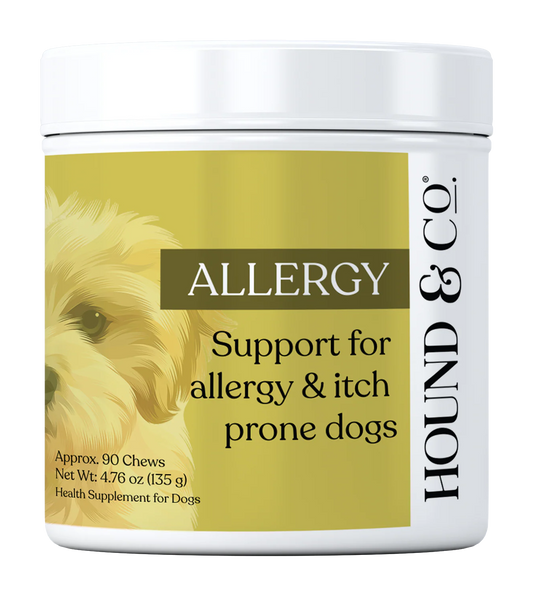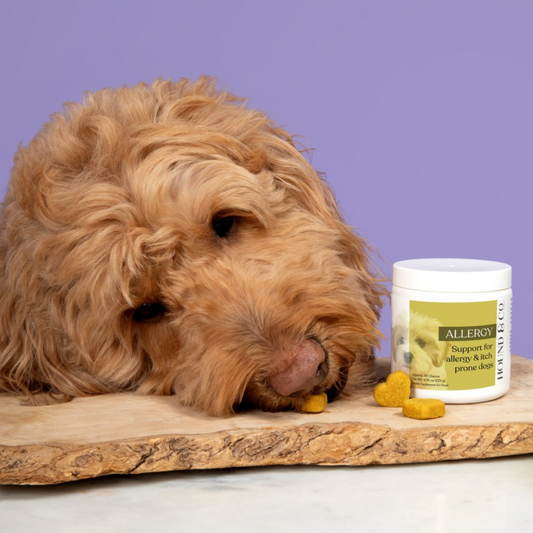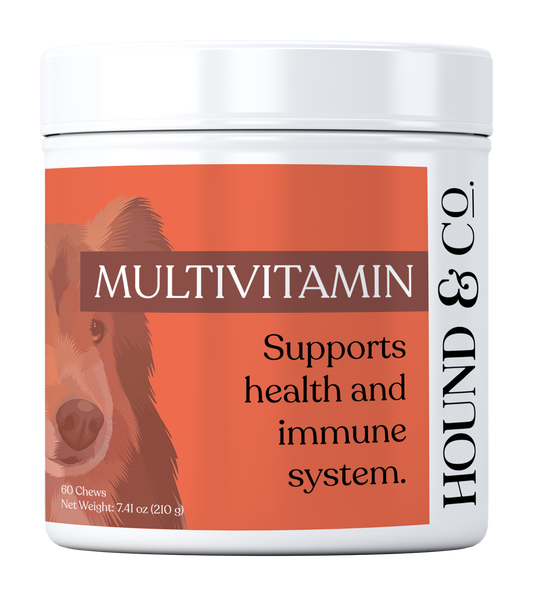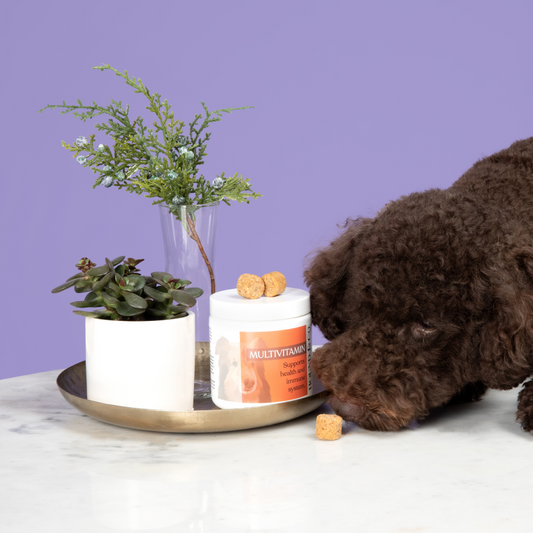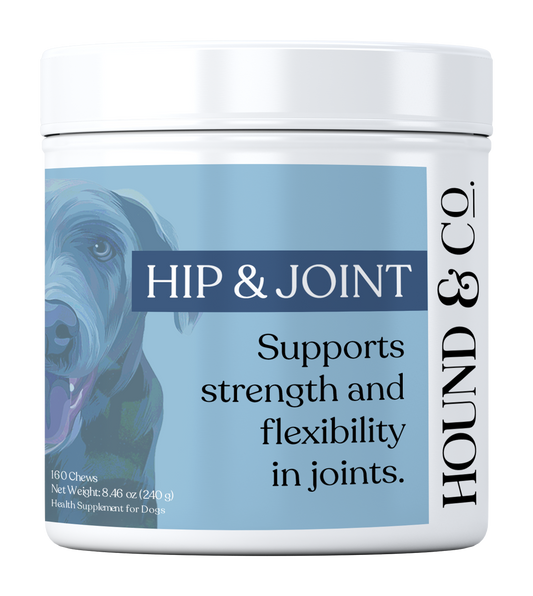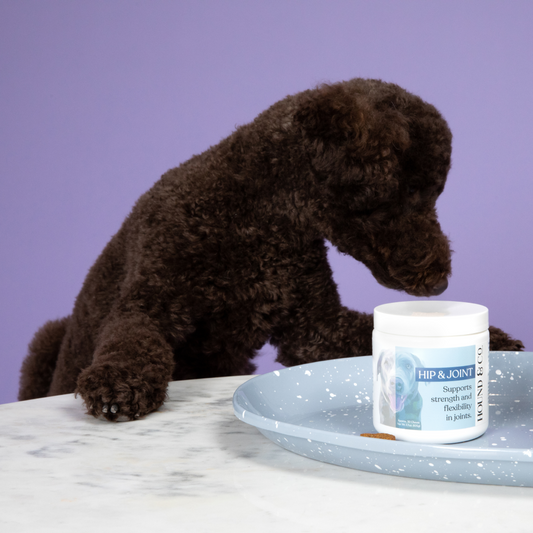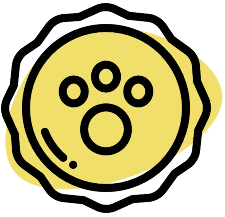Glow Up: DIY Solutions for Your Dog's Healthy Skin and Fur
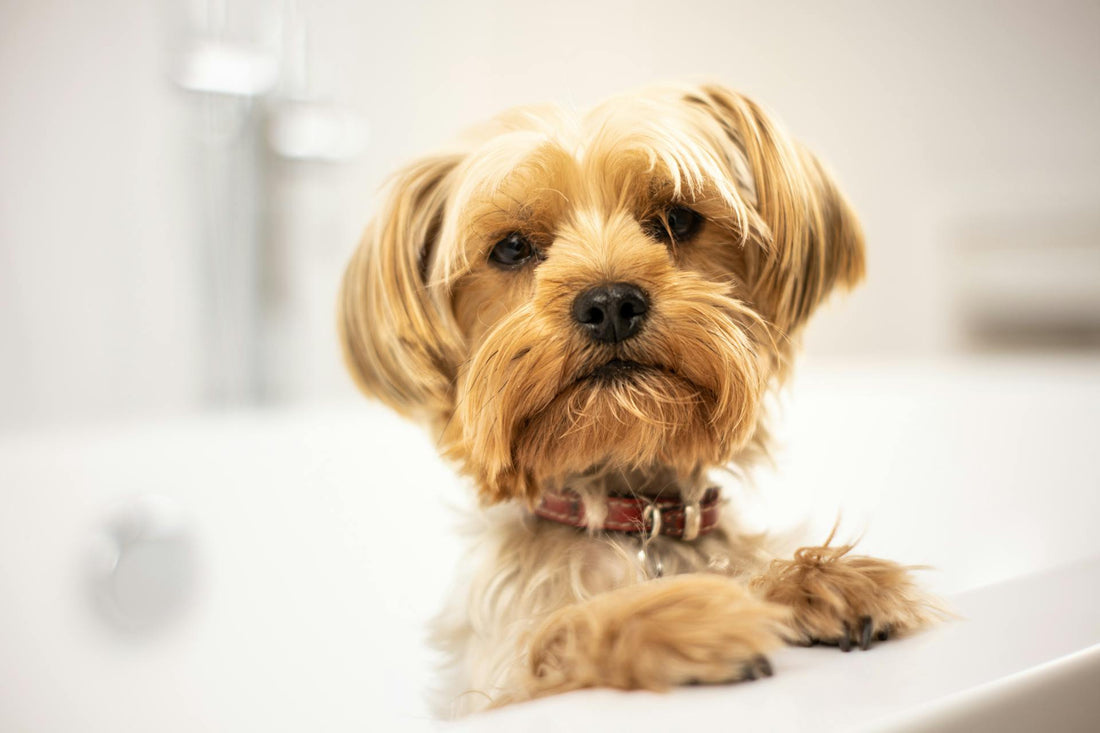
Vet Reviewed by Dr. Jacob Klos, DVM

Maintaining your dog's coat and skin in top condition can sometimes feel like an uphill battle, especially if your furry friend is prone to allergies or skin issues. Fortunately, there are several DIY remedies that can help you keep your dog's skin healthy and their coat shiny, all from the comfort of your own home. In this article, we'll explore some simple, natural solutions that you can incorporate into your dog's grooming routine.
1. Regular Brushing
Why It Matters: Brushing your dog's coat regularly helps remove dirt, debris, and loose hair, which can prevent matting and tangles. It also stimulates the skin and promotes healthy blood circulation, distributing natural oils throughout the coat for added shine and protection.
How To: Use a brush appropriate for your dog's coat type. Short-haired breeds can benefit from a bristle brush or a rubber curry comb, while long-haired breeds may need a slicker brush or a pin brush. Aim to brush your dog at least once a week, or more frequently if they shed heavily.
2. Oatmeal Baths
Why It Matters: Oatmeal is known for its soothing properties and can help alleviate itchy, irritated skin. An oatmeal bath can provide relief from dry skin and allergies, leaving your dog's coat feeling soft and refreshed.
How To: Grind plain, unsweetened oatmeal into a fine powder using a food processor or blender. Add about one cup of the oatmeal powder to warm bathwater and stir until the water looks milky. Let your dog soak in the oatmeal bath for 10-15 minutes, then rinse thoroughly with clean water and dry them off.
3. Coconut Oil Treatment
Why It Matters: Coconut oil is a natural moisturizer with antibacterial and antifungal properties. It can help treat dry, flaky skin and add a healthy shine to your dog's coat. Additionally, it can be used to soothe hot spots and minor skin irritations.
How To: Massage a small amount of organic, unrefined coconut oil into your dog's skin and coat, focusing on any dry or irritated areas. Let it sit for about 5-10 minutes before rinsing off with warm water. Alternatively, you can add a teaspoon of coconut oil to your dog's food to promote skin health from the inside out.
4. Apple Cider Vinegar Rinse
Why It Matters: Apple cider vinegar (ACV) is a natural astringent that can help balance the skin's pH levels, repel fleas, and alleviate itchiness. It also helps remove product buildup and adds a natural shine to the coat.
How To: Mix equal parts of apple cider vinegar and water in a spray bottle. After bathing your dog with a gentle shampoo, spray the ACV mixture onto their coat, avoiding the eyes and any open wounds. Let it sit for a few minutes, then rinse thoroughly with water.
5. Balanced Diet
Why It Matters: A well-balanced diet is crucial for maintaining healthy skin and a shiny coat. Foods rich in omega-3 and omega-6 fatty acids, vitamins, and minerals can support skin health, reduce inflammation, and promote a glossy coat.
How To: Ensure your dog is eating high-quality food that includes essential fatty acids, such as fish oil or flaxseed oil. You can also add supplements like omega-3 capsules or feed them natural sources of these nutrients, such as salmon or sardines.
6. Herbal Rinses
Why It Matters: Herbal rinses made from natural ingredients like chamomile, rosemary, or calendula can help soothe irritated skin and promote a healthy coat. These herbs have anti-inflammatory and antibacterial properties that can benefit your dog's skin.
How To: Brew a strong tea using dried chamomile, rosemary, or calendula flowers. Allow the tea to cool completely, then use it as a final rinse after your dog's bath. Pour the herbal tea over your dog's coat and massage it into the skin, then let it air dry without rinsing.
7. Aloe Vera Gel
Why It Matters: Aloe vera is renowned for its healing and moisturizing properties. It can soothe irritated skin, reduce inflammation, and promote healing of minor wounds and hot spots.
How To: Use pure aloe vera gel (ensure it's free from additives and preservatives) and apply it directly to your dog's skin. Focus on areas that are dry, itchy, or irritated. Leave the gel on and allow it to absorb into the skin.
Final Thoughts
By incorporating these DIY remedies into your dog's grooming routine, you can help maintain their skin and coat health naturally and effectively. Regular care, a balanced diet, and the right natural treatments can make a significant difference in your dog's overall well-being. Remember, if your dog has severe skin issues or allergies, it's always best to consult with your veterinarian for tailored advice and treatment options. With these tips, your furry friend will be looking and feeling their best in no time!







